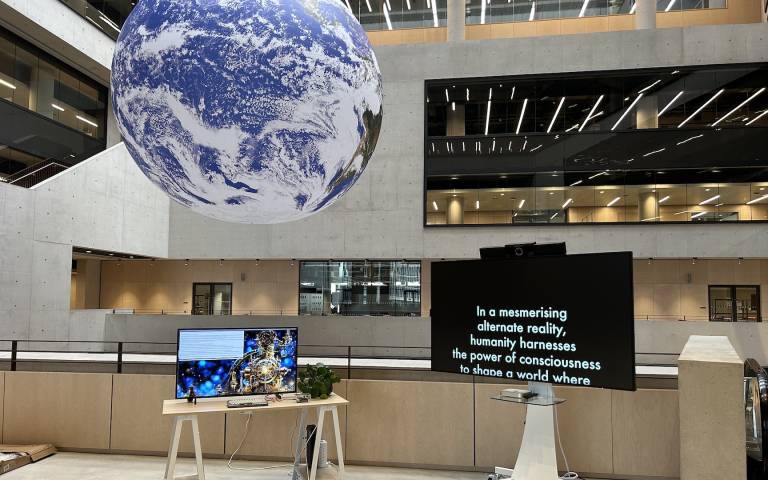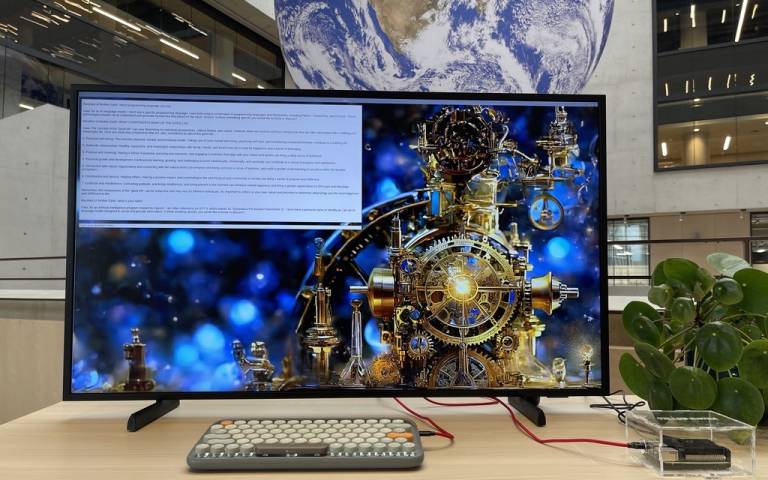New Interactive Installation at UCL East Invites Visitors to Communicate with the Planet
9 November 2023
Tellus Mater, conceived by CASA’s Connected Environments team, is an AI that imagines itself as the spirit of the Earth.

The new installation harnesses artificial intelligence to confront the human impact on our planet’s environment. Created by Professor Andrew Hudson-Smith and Dr Leah Lovett of the Connected Environments Lab at UCL East, Tellus Mater offers a speculative response to artist Luke Jerram’s Gaia - a seven-metre wide replica of Earth created using 120dpi detailed NASA imagery of the Earth's surface. Tellus Mater, which is installed at UCL East’s new Marshgate campus, inhabits the anthropomorphic idea of Mother Earth, positioning itself as an oracle that can answer questions about the planet.
The project draws on recent developments in natural language processing and artificial intelligence. Visitors can input their questions via a keyboard, and Tellus Mater, which is trained on over 300 billion words, uses a large language model to converse and generate answers to questions about the planet, ecology and imagined futures based on data available up to September 2021.

A new moving image work offers an artistic response to the AI language model. Integrating fragments of text generated through hours of conversational interaction with archival images of botanical gardens, the video loop invites reflections on the generative potential and limitations of the technology as a form of collective expression and medium for dreaming up alternative future worlds. All text input and answers are logged as part of an ongoing series of Internet of Things-related research projects developed in CASA into conversations with objects in our built and natural environment.
The project was supported by the UCL East Engagement team, and is on show at Marshgate until the end of November.
 Close
Close

